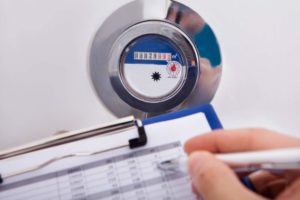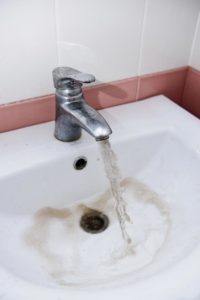Purchasing a new home is an exciting adventure for you and your family, and you deserve to enjoy it. After you have found that dream house that has the right number of bedrooms, a big picture window, and a beautiful backyard, you need to think about those parts of the house you do not see on a daily basis.
 Many people are aware they should have a new home inspected before buying, but often they fail to make sure the plumbing has been inspected as well. Months after the purchase, plumbing problems such as flooding and leaks start manifesting themselves.
Many people are aware they should have a new home inspected before buying, but often they fail to make sure the plumbing has been inspected as well. Months after the purchase, plumbing problems such as flooding and leaks start manifesting themselves.
Plumbing problems that go undetected can cost the new homeowners thousands of dollars in the end. A professional plumber from (company) can help you analyze potential problems.
After the inspection, you can request the house seller to work on plumbing problems that have resurfaced as part of the sale agreement. The fact is that most retailers will either go ahead and fix the problem or adjust the price of the house. Here are some plumbing tips that can guide you during plumbing inspection before signing agreement papers.
Check the Water Heater
Hot water is essential for bathing, cooking, and laundry. You want to make sure your family is supplied with hot water consistently. Among critical factors that you should consider while inspecting a water heater include:
- Size: a water heater should have at least 40 gallons tank for a family of four
- Location: Make sure the water heater is located in a safe place and it is well positioned
- Age: Check how old is the water heater
- Signs of corrosion: If the water heater is corroded, request the seller to install a new one as part of the purchase agreement
Check the Pipes
You would want to check for cracks, leaks and other problems that may call for a replacement. It is also worth noting that homes that were built before 1998 might have a lead or galvanized plumbing. Lead poses an environmental hazard and can cause health problems, particularly in children.
 A plumber can provide guidance on estimating the cost of replacing lead pipes before you agree to buy the home. Other things that you should consider include:
A plumber can provide guidance on estimating the cost of replacing lead pipes before you agree to buy the home. Other things that you should consider include:
- Make sure pipes are prevented from freezing during winter seasons. This can be done through wrapping or having vents closed off during the winter.
- Look for stains on surfaces underneath the pipes and on walls. Stains on pipes indicate leaks. Even if there are no apparent drips, stains signal future problems.
- Check for discoloration, dimpling, and flaking, as these signs indicate corrosion. You may bring in a plumber to help you do this inspection
- Watch for small leaks. The small leaks can easily be repaired, but they are indicators that the time for replacing plumbing for the whole house is approaching. It is most likely that all the pipes in the house are of the same vintage and made up of the same materials.
- Look at the color of the bathtub water. If the water has a yellowish or brown color, the pipes have rusted (a sign of decay inside the pipes). This is a clear indication that replacement will soon be needed.
Check the Sewage System
Sewage issues are often expensive and smelly, and it is imperative you know about them prior to purchasing the home. First, you need to find if the waste goes to your septic tank or into the town or city sewage system. It is worth noting that most homes built in the 1950s often have sewer lines made of Orangeburg pipe. These pipes are made up of tarpaper that quickly collapse after degradation. In particular, if the house has septic tanks you should look for the following:
- Find out the exact location, and it should not be located near a water well or stream.
- Check for the last time the septic tank was serviced or emptied. The septic should be emptied if the sludge covers more than a third of the total volume.
- Ensures the baffles are well connected to the tank’s outlets and inlets.
- Check for any cracks and make sure the riser lids are secure.
- Sewers lines should also be clear of tree roots and debris. A plumber can determine the status of sewer lines by running a specialized camera through the pipes.
- Any leakage or odor around the septic tank is a sign that there is a problem. The seller should address it before you sign the contract.
Check All Faucets
The bathroom and kitchen plumbing are also critically important. Check the drains, showers, sinks, and toilets. You should check and make sure all faucets are operational, and water has sufficient pressure. The toilet should flush when you pull the handle. In addition, check the following:
Make sure the sinks and toilet bowl are firmly installed and do not move when you apply gentle pressure on them.
 Check for any warping or discoloration in the flooring, particularly around bathroom equipment. If the surface feels spongy, that is an indication there is a leak that requires repairs.
Check for any warping or discoloration in the flooring, particularly around bathroom equipment. If the surface feels spongy, that is an indication there is a leak that requires repairs.
Only in very rare cases are sellers held liable for these issues and much more after a sale has been completed. This is because most sales agents will say that the house is being sold as it is, and is the responsibility of the buyer to evaluate the condition before they make the purchase.
Having a qualified plumbing expert inspect the plumbing system and point out any major issues before you buy can save you a lot of money in the end. An expert can point out a serious problem that can dissuade you from buying the house.
More importantly, you can negotiate for a reduction of the sale price to offset the cost of repairs for problems resurfaced during an inspection. Besides, plumbing inspection will give you some insight about the property and help you avoid hassles related to plumbing in the coming years.
The Drainiacs produly serve the La Habra, CA area. We use advanced solutions that will identify all types of problems including root intrusions, as well as misaligned, punctured, broken, corroded, and off-grade pipes. Call us at (562) 543-3887 today to schedule a plumbing inspection.
